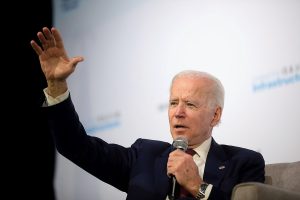The election of Joe Biden as the next president of the United States is providing some much needed relief for the rest of the world. For Pacific Island states, Biden’s commitment to have the United States rejoin the Paris Climate Agreement will be greatly welcomed. As I wrote in early October, Fijian Prime Minister Frank Bainimarama gave remarks to the recent United Nations General Assembly urging other countries to remain committed to the ideals of multilateralism. As the world’s most powerful country, the commitment of the United States to these ideals is essential to the successful functioning of multilateral bodies.
For small countries like the Pacific Island states, crucial to being able to negotiate the international community successfully is having larger powers understand and internalize their interests and concerns. This is usually a task for Australia, and Canberra has begun to take this role more seriously due to recent strategic competition from China in the South Pacific. However, on the Pacific’s most pressing concern — climate change — the Australian government has proved itself less than helpful and frequently obstructionist.
Under President Donald Trump, the United States pulling out of the Paris agreement provided cover for Australia in its own recalcitrance on efforts to combat climate change. However, a Biden White House that is committed to serious action on the issue will make it more difficult for Australia to simply avoid taking its own obligations seriously. For Pacific Island states this will be a positive shift in the global influence required to address their concerns.
Yet, for Bainimarama, simply resting on the power shift in Washington and hoping that this will prove beneficial to the Pacific has not been enough. For him, there is a strong need for the Biden administration to receive a firsthand account of the effects climate change is having on the region. In this vein, Bainimarama has extended an invitation to Biden to travel to Fiji in August 2021, when the country will be hosting the annual Pacific Islands Forum Leaders’ Summit.
Of course, the United States is heavily invested throughout the Pacific through its affiliated Pacific Island territories; American Samoa, North Mariana Islands, and Guam are observers at PIF. The three independent countries in free association with the United States — the Federated States of Micronesia, the Marshall Islands, and Palau — are full members of the forum. Yet the most recent senior U.S. attendee of the PIF Leaders’ Summit was Secretary of State Hilary Clinton, who attended the summit hosted by the Cook Islands in 2012.
Were Biden to attend the 2021 summit it would be a strong demonstration of his administration’s priorities. Pacific Islands make negligible contributions to climate change, yet disproportionately feel its effects. Therefore, there is no more compelling signal that larger, more powerful, countries are giving the issue the importance it deserves than by making the effort to engage with the leadership of Pacific Island countries in a genuine and committed manner. The Pacific is — for want of a better word — the coalface of climate change.
The presence of Biden at PIF 2021 would also serve to regulate Australia’s behavior. At last year’s forum Pacific Island leaders felt that Prime Minister Scott Morrison was both dismissive of their concerns about climate change, and insulting toward them as they tried to make their case to PIF’s most powerful member. The Australian delegation also tried to water down the forum’s communiqué by removing all references to coal. The protection of Australia’s large coal industry from attempts to decarbonize the country’s economy, as well as the technological change that would make it redundant, remains a highly political issue in Australia. It is an issue that the governing conservative coalition refuses to confront, and the opposition Labor Party is internally conflicted by.
This persistent feature of Australian politics remains a major barrier to the Pacific’s most pressing requirements. However, the election of Joe Biden — and his professed commitments to more significant action to reduce global carbon emissions — may change these calculations. It will place greater pressure on Australia to overcome its current climate insolence, and potentially move it into a position where it can become a sympathetic advocate for the Pacific’s needs. Were Biden to also attend next year’s PIF Leaders’ Summit his ability to gain a firsthand understanding of the predicament Pacific states find themselves in also has the potential for these countries to gain the most powerful ally in their existential challenge.

































